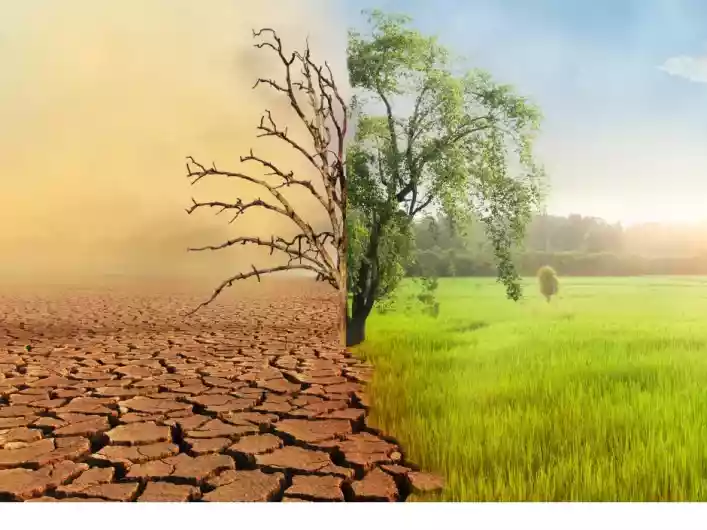
AFRICA continues to reel under the negative impacts of climate change in all sectors comprising agriculture, energy, forestry, water development, transport, wildlife, weather patterns, health and well-being and education, among others.
The continent has tried everything to come up with solutions to the climate problem but the tonic used just does not seem to be what the continent needs. In this regard, Africa appears to be importing remedies to solve its climate problems thereby exacerbating the climate dilemma.
While it is in the interest of globalisation that countries network and collaborate on issues affecting the global landscape, Africa appears to be too drunk with borrowed and prescriptive dosages from elsewhere than adopt its own.
The continent is not short of its own climate agenda hence it should mobilise its resources to fund its own climate agenda.
The continent is careless when it comes to managing its natural resources that is why it is always crying for climate finance. Were it not for rampant corruption and mismanagement of its natural resources, Africa could be funding its climate challenges not the other way round.
The continent has played the victim card for a long time while opening floodgates for abuse by developed countries in the process. Africa needs to come clean on some of the climate remedies it is importing because there are now more questions than answers. The issue of carbon markets and trading is controversial and debatable while the issue of net-zero is unachievable, tantamount to either greenwashing or climate propaganda.
This also applies to the invasion of genetically modified foods (GMOs) on the continent destroying food sovereignty in the process. African people will never understand how carbon credits appeal to their situation when their forests are sold to foreign countries, especially those that have not been blessed with natural forests in the first place.
Africa does not need GMOs even when they can contribute to food security, it is how they impact on people’s health well-being and the environment which is a major concern. One wonders how these food systems can be part of the Africa climate agenda.
- COP26 a washout? Don’t lose hope – here’s why
- Out & about: Bright sheds light on Vic Falls Carnival
- COP26 a washout? Don’t lose hope – here’s why
- Out & about: Bright sheds light on Vic Falls Carnival
Keep Reading
GMOs are a result of food colonisation which has been a very powerful and deceptive tool, highly imposed and misinformed. Captured Africans now treat their own local foodstuffs with disdain, scorn, suspicion and lack of confidence.
The African food capture and embezzlement has resulted in people forfeiting their food sovereignty, rights and belief systems to the nations which always have new ways of enslaving Africans without them noticing.
Net-zero refers to a state in which greenhouse gases going into the atmosphere are balanced by removal out of the atmosphere.
This implies that net zero underlies that, for carbon dioxide, it is the state at which global warming stops. Furthermore, it is difficult to reduce runaway greenhouse gas emissions and ensure that ongoing emissions are balanced by removals through carbon sinks.
Although this is under the Paris Agreement, it is not clear how emissions would be regulated even with the benchmark of 1,5 degrees celsius, considering that there are no monitoring mechanisms or consequences for those who pollute more.
The concept of carbon credit will never be clear to communities which call the forests theirs because carbon credits are daylight robbery and kleptomaniac tendencies on the people’s heritage. The concept of carbon trading is that developing countries introduce carbon credit systems that strike a balance between climate change adaptation, mitigation and climate financing.
Industrialised countries finance green projects in developing countries and in return these developing countries receive carbon credits to offset carbon emissions from elsewhere.
The carbon credit system sounds good on paper but very poor and ambiguous in practice and one wonders how much this is an African climate agenda to sell the people’s heritage to the highest bidder or carbon criminals so that they continue to emit greenhouse gases.
Furthermore, how much is the African Agenda 2063, “the Africa we want” an African agenda? Agenda 2063 is Africa’s blueprint and master plan for transforming Africa to a global powerhouse of the future.
The Africa we want spans from 2013 to 2063, measured by its key flagship programmes, which are not clear about heritage issues, especially the scientific and indispensable indigenous knowledge systems. In the flagship number 14 “Great African Museum,” there is only reference to the word culture but it is not specific whose culture in this regard.
In terms of the buzz word, “Agenda 2030”, many Africans are not aware that this agenda is not the brainchild of their presidents’ but the United Nations.
There is a lot of misinformation and too many conspiracy theories regarding agenda 2030, leading to distortion where some people think vision 2030 is a party slogan.
There should also be resilience in the construction sector through localisation of building and construction materials suitable and adaptable to local conditions and environments. Importing quality building materials is good for beautifying buildings but not key for environmental sustainability and circular economy.
Some imported building materials were not designed for local conditions and they emit greenhouse gases, culminating in e-waste. The African climate agenda needs to transform and reform Africa’s building standards for climate proof purposes especially in the face of recurring disasters.
It is in this view that the African continent has a clear, specific and well-articulated climate agenda for sustainable development to take place. Procedural and structural ambiguities will militate against desired outcomes and successes.
- Peter Makwanya is a climate change communicator. He writes in his personal capacity and can be contacted on: petrovmoyt@gmail.com







